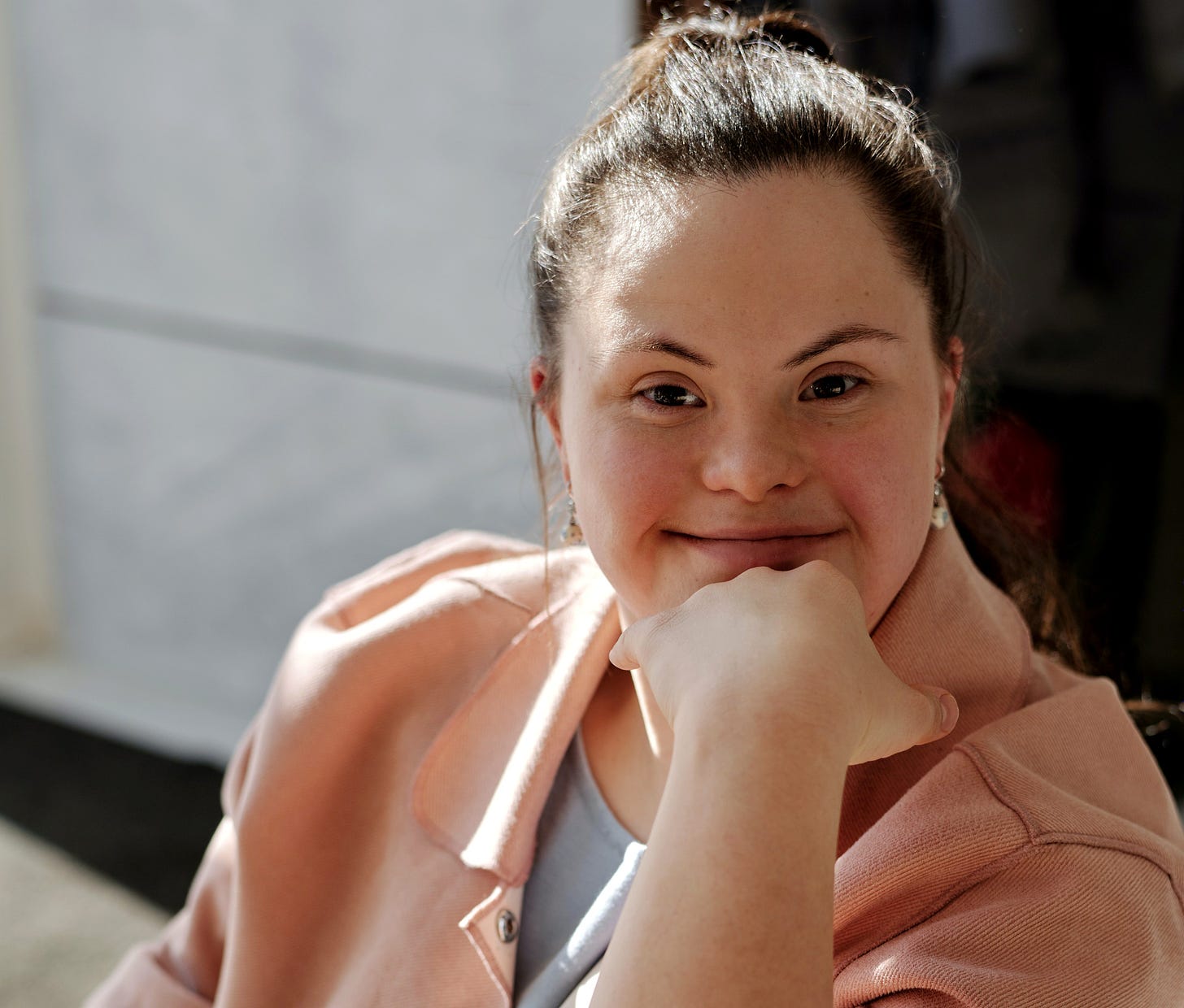Richard Dawkins Misses the Boat (Again) On People with Down Syndrome
It's never too late even for Oxbridge dons to imbibe this valuable lesson: when you're stuck in a hole, stop digging.
Photo: Cliff Booth, Pexels
Richard Dawkins’ self-styled expertise on Down syndrome was again on full display last week in an interview with Irish radio host Brendan O’Connor.
Dawkins is a retired Oxford biology professor perhaps best known as one the four horsemen of the New Atheism that took the intellectual world by storm fifteen years ago. His smug Oxbridge manner—evident in YouTube videos in which he recites his own hate mail—seems entirely out of synch in a popular culture obsessed with tolerance and empathy. This makes him an easy target even for rational, science-believing, Enlightenment-defending liberals who mostly agree with his world view.
The back-story on the furore occasioned by the O’Connor interview originated in a 2014 tweet Dawkins posted in response to a hypothetical question about the ethics of bringing to full term a fetus that has tested positive for Down’s. “Abort it and try again,” was Dawkins’ advice. “It would be immoral to bring it into the world if you have the choice.”
Facing a “feeding frenzy” of criticism from people with Down syndrome, their advocates and others who accused him of everything from eugenic thinking to outright Nazism, Dawkins subsequently apologized for the terse language of his tweet (claiming it was inevitable in the 140-chacter Twitterverse). But he did not backtrack on his essential point. “If your morality is based, as mine is, on a desire to increase the sum of happiness and reduce suffering, the decision to deliberately give birth to a Down’s baby, when you have the choice to abort it early in the pregnancy, might actually be immoral from the point of view of the child's own welfare,” he clarified. A second, equally intense round of opprobrium predictably descended on him.
Fast forward to May 11, when O’Connor, who has a child with Down’s, asked Dawkins entirely dispassionately whether he still holds these views. Dawkins replied that he still thinks it would be “wise and sensible” to abort Down’s fetuses because “the amount of suffering in the world probably does not go down, probably does go up, compared to having another child who doesn’t have Down's syndrome.”
Dawkins’ many critics have attacked his seemingly casual utilitarianism with gusto, to say the least. Some, including blind and deaf people, have posed the question whether any clear ethical lines can ever be drawn on the termination of “defective” fetuses once we have tacitly agreed to establish defect hierarchies. Others, including O’Connor, have observed that many fetuses not afflicted with congenital, i.e. screenable, conditions have grown into full adulthood only to inflict untold suffering on the world. Some advocates for people with disabilities have argued that systemic “ableism” is the core problem. Most importantly, perhaps, spokespersons for Down syndrome associations everywhere have redoubled their message that, as one of them put it, “People with Down's syndrome can and do live full and rewarding lives [and can] make a valuable contribution to our society.”
Regrettably, the well-rehearsed ethical debate and especially the politics of special-needs advocacy has had the unintended effect of deflecting Dawkins’ critics from his true intellectual crime, namely that he has no idea what he is talking about.
Brendan O’Connor’s ingenious insight was to ask Dawkins two questions so disarmingly honest that he had no opportunity to dissemble.
“Do you know anyone with Down syndrome?” O’Connor asked.
“No, not intimately, no,” Dawkins replied.
And did he have any evidence to support his claims about the net-negative impact on humanity of people with Down syndrome?
Dawkins: “I have no direct evidence, no.”
These are remarkable, indeed breathtaking, admissions—and not only because Dawkins is one of the world’s most distinguished academics.
They are remarkable because, as anyone who has spent the least bit of time in the presence of Down’s people will tell you, their capacity for love, affection and empathy—and thus for increasing the world’s happiness quotient practically wholesale—is one of their most well-documented and celebrated gifts.
People with Down’s are not likely to end up in one of Dawkins’ seminars at Oxford, it’s true. But that is his loss.




